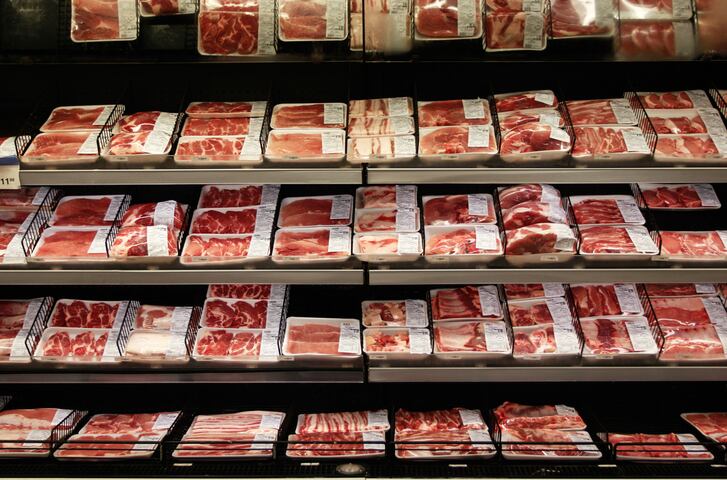The department’s announcement yesterday follows allegations that the “vast majority” animal raising claims reviewed by USDA are inadequately substantiated, “ripe for exploitation” and do not meet the expectations of consumers who increasingly seek and pay a premium for products they perceive as better for animals, the planet, workers and themselves.
Several of the animal welfare, environmental and public health advocates that lobbied these allegations applauded USDA’s proposal as a strong first step but also called for additional oversight of related environmental and production claims that have proliferated in recent years and which, they say, could mislead consumers.
USDA acknowledges concerns about its oversight of animal-raising claims
While USDA does not regulate animal-welfare and agricultural production practices on farms, USDA’s Food Safety and Inspection Service is tasked with verifying the veracity of label claims, including voluntary animal-raising claims – a process that it acknowledges “has come into question.”
To ensure the integrity of these claims and address concerns raised in recent petitions, reports and letters asking FSIS to reevaluate how it oversees and substantiates animal raising and welfare claims, USDA said June 14 that it will implement a “multi-step effort aimed at strengthening the substantiation of animal-raising claims.”
FSIS will sample cattle for antibiotic residue
One step will include partnering with USDA’s Agricultural Research Service to sample and assess antibiotic residues in cattle to be labelled as “raised without antibiotics. Based on the findings, FSIS will determine if lab test results should be submitted for the “raised without antibiotics” and similar claims or if it needs to create a new verification sampling program.
Such a sampling program could mirror a study conducted by the Antibiotics Resistance Action Center (ARAC) at the Milken Institute School of Public Health at George Washington University along with Food ID that was published in Science in April 2022 that ARAC founder Lance Price said found “substantial portion of cattle destined for the ‘Raised without Antibiotics’ market had actually been given antibiotics.”
He argued in a June 14 statement this step is “particularly important” because “consumers pay a premium when purchasing RWA products” and “they should get what they are paying for.”
He added increased oversight also is important because “society as a whole should benefit from genuine reduction or elimination of antibiotic use in animal agriculture” and that “equally important, consumers should be able to trust in the USDA-verified claims on all meat and poultry products they buy, whether in the grocery store or online.”
USDA urges third-party certificaiton
To further level the playing field for producers that truthfully use animal-raising claims, USDA also committed to revising industry guidelines for substantiation and documentation of such claims.
As part of this substantiation, USDA said it “plans to strongly encourage use of third-party certification to verify these claims.”
The Animal Welfare Institute welcomed this proposal, noting it has long lobbied for third-party certification for animal-raising, animal welfare and environmental stewardship (including regenerative and sustainable).
“AWI has issued multiple reports over the last decade documenting how the USDA routinely allows producers to use ‘higher-welfare’ claims on products from animals raised under conventional industry standards,” AWI farmed animal program director Dena Jones noted in a June 14 statement.
“The current approval process is inadequate and ripe for exploitation,” she added.
In one recent AWI report, the group reviewed FSIS label approval applications submitted between 2013 and 2021 by producers for their use of humane or sustainability claims. Based on data compiled from Freedom of Information Act requests, AWI concluded that for 48 of the 97 claims it reviewed USDA was unable to provide any application information and for 34 claims the application it received either had no relevant or insufficient substantiation.
Friends of the Earth echoed AWI’s frustration with FSIS’ oversight of animal-raising claims, as well as its approval of USDA’s next steps.
“For too long, Big Ag corporations’ false or misleading labeling claims have duped consumers and undermined truly sustainable and humane producers. USDA has rubber stamped these claims, sowing confusion for consumers and creating an unfair playing field for producers,” Chloë Waterman, senior program manager at Friends of the Earth, said in a statement.
Waterman added: “Secretary Vislack’s commitment today to strengthen substantiation of animal raising claims is a strong step in the right direction. USDA must ensure that all animal raising claims are backed up by a third-part certification that exceeds conventional production standards, and prohibit claims like ‘low-carbon beef’ that are fundamentally misleading.”
More work on the horizon
While AWI said it appreciates USDA’s proclamation, it adds that it would like the agency to go further and also review other animal-raised claims for poultry, including ‘free range’ and ‘pasture raised’ and to clarify the difference between the two.
Looking forward, USDA said it will use the outcomes from this week’s announcement “to guide potential rulemaking on animal-raising claims,” and that it looks forward to “continued engagement with stakeholders as it works to ensure these claims meet consumer expectations.”



